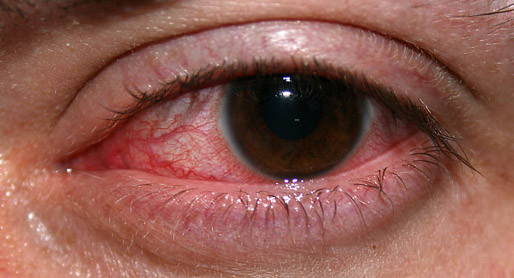6 Signs of Perfume and Deodorant Allergy
Are you reacting to your favorite perfume or deodorant? You may have an allergy to your fragrance and not realize it. A perfume and deodorant allergy is often misunderstood and reactions to fragrances are incorrectly labeled as an allergy. However, there is a difference between irritation caused by fragrances and an actual allergy. It is important to identify whether you have a perfume or deodorant allergy although the symptoms may seem similar to irritation to a fragrance. An allergy is often a more serious reaction and you should take the necessary measures to avoid the trigger fragrance altogether.
Irritation or Allergy to Scents
The human body is able to withstand exposure to various substances. Some will not cause any disturbance to the system but at times the body can react to the presence of even a few molecules of a specific substance. These substances may either act as an irritant or allergen. Wit irritation, the substance damages a part of the body and elicits inflammation. It can happen to any person although the amount of a substance to induce irritation can vary from person to person. An allergy is slightly different.

Allergies occur when the immune system reacts to a substance that is otherwise harmless. The substance in this case is known as an allergen. The reason why some people develop allergies to certain harmless substances is not known. It is believed to be partly genetic in nature. Allergies are more likely to develop in a person who has a history of immune hypersensitivity. For example, if you had allergic asthma, allergic rhinitis (hay fever) or atopic dermatitis in childhood then you are at a greater risk of allergies.
In an allergy, the specific immune system develops antibodies to a substance. When your body is exposed to the allergen, these antibodies trigger certain parts of the immune system which results in inflammation. With a perfume or deodorant allergy, the chemicals that make up the scent or other additives to the fragrance may serve as an allergen. Even if you were exposed to it previously and did not experience any reaction, your body may later develop an allergy to it.
Redness and Skin Rash
Redness of the skin is probably one of the most common symptoms that most of us associate with a perfume or deodorant allergy. It can also occur with irritation of the skin from being exposed to different fragrances. When the chemicals in the perfume or deodorant make contact with the skin, it can cause localized inflammation. Redness of the skin is the most obvious symptom but a skin rash can develop with persistent use of the fragrance and particularly in people who are allergic to the fragrance. Initially the skin is swollen and raised but with time it becomes dry and rough to touch. An allergic reaction at the area where the perfume or deodorant makes contact with the skin is known as allergic contact dermatitis.
Itching, Burning and Sensitive
Itching of the skin with a perfume or deodorant allergy is another common symptom. Sometimes the itching arises with any skin redness or rash. It is one of the first symptoms of sensitivity to a fragrance but it is often ignored. The itching tends to worsen as a rash erupts and can be intense to the point that the repeated scratching damages the skin. However, itching is not always present. Therefore the lack of itching should not mislead a person into believing that they are not sensitive to the fragrance. Sometimes the skin may burn upon contact with the perfume or deodorant. This is more often seen with chemical irritation. The skin may also become sensitive to touch after exposure to the fragrance.
Burning and Watery Eyes

Some perfumes or deodorants are applied with aerosol sprays for wide coverage. This means that the particles are airborne and can make contact with the eyes. Even if not sprayed, a perfume or deodorant has volatile substances that vaporize easily and are therefore airborne. These substances can therefore irritate the eyes through contact with the air. Even if you have not worn the fragrance, another person’s perfume or deodorant may also cause irritation or trigger an allergic reaction. Inflammation of the outer parts of the eye like the conjunctiva and cornea tends to result in redness and burning. Excessive tearing also occurs thereby leading to water eyes.
Sneezing and Runny Nose
The airborne particles can also enter the nasal passages and irritate it. Inflammation of the nasal mucosa, either due to an allergy or irritation, will elicit sneezing and a runny nose. The discharge is typically thin and watery. As with the eyes, the nasal symptoms may arise even if a person is not wearing any fragrance. Being in close proximity to a person wearing a perfume or deodorant or even stepping into a closed room where the fragrance was sprayed may trigger a reaction. Sneezing is the body’s attempt to discharge the irritant from the nasal passages. A runny nose is not only a sign of inflammation. It is also the body’s way of “washing out” the nasal passages.
Darkened Skin

Darkening of the skin can arise with prolonged irritation or a long term allergic reaction. Sometimes it is the scratching that leads to skin damage and darkening. Discoloration of the skin is often more prominent on the armpits where people tend to apply perfume and deodorant liberally. While antiperspirant deodorant will only work when sprayed directly to the skin, ideally a person should avoid applying perfume or deodorant on the skin. The darkening may be reversible if the damage to the skin is not extensive and the applying the perfume or deodorant to the skin is discontinued. However, in many cases it is a permanent darkening.
Breathing Difficulty
A person who is hypersensitive to fragrances may experience more serious symptoms when the airborne particles enter the airways. It can cause respiratory symptoms like hoarseness of the voice and even difficulty breathing. These are uncommon symptoms of a perfume or deodorant allergy but may occur in high risk individuals, like people suffering with allergic asthma. The lining of the respiratory passages are abundant in immune cells that play a central role in allergies. When airborne particles from the perfume or deodorant make contact with the lining of the airways, an allergic reaction occurs very rapidly. There is swelling in the walls of the airways and the airflow is therefore restricted. Difficulty breathing with a perfume or deodorant allergy is unlikely to occur due to anaphylaxis – the most severe type of allergic reaction which can be fatal.





